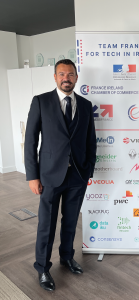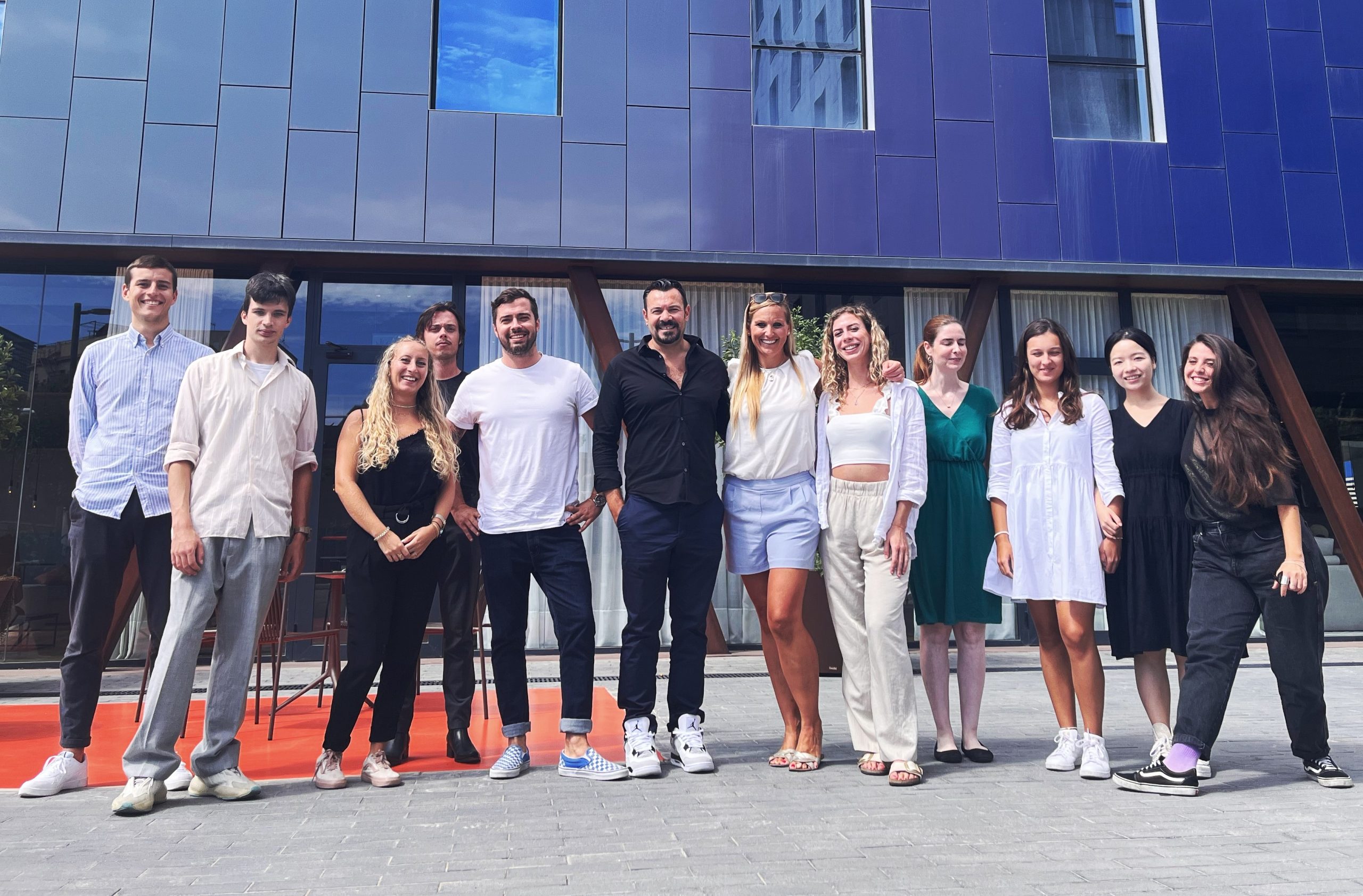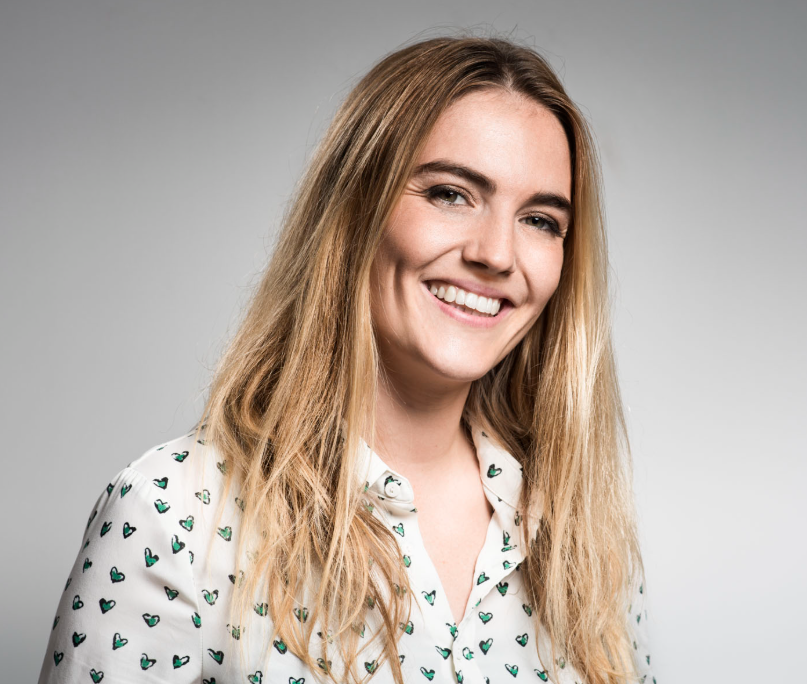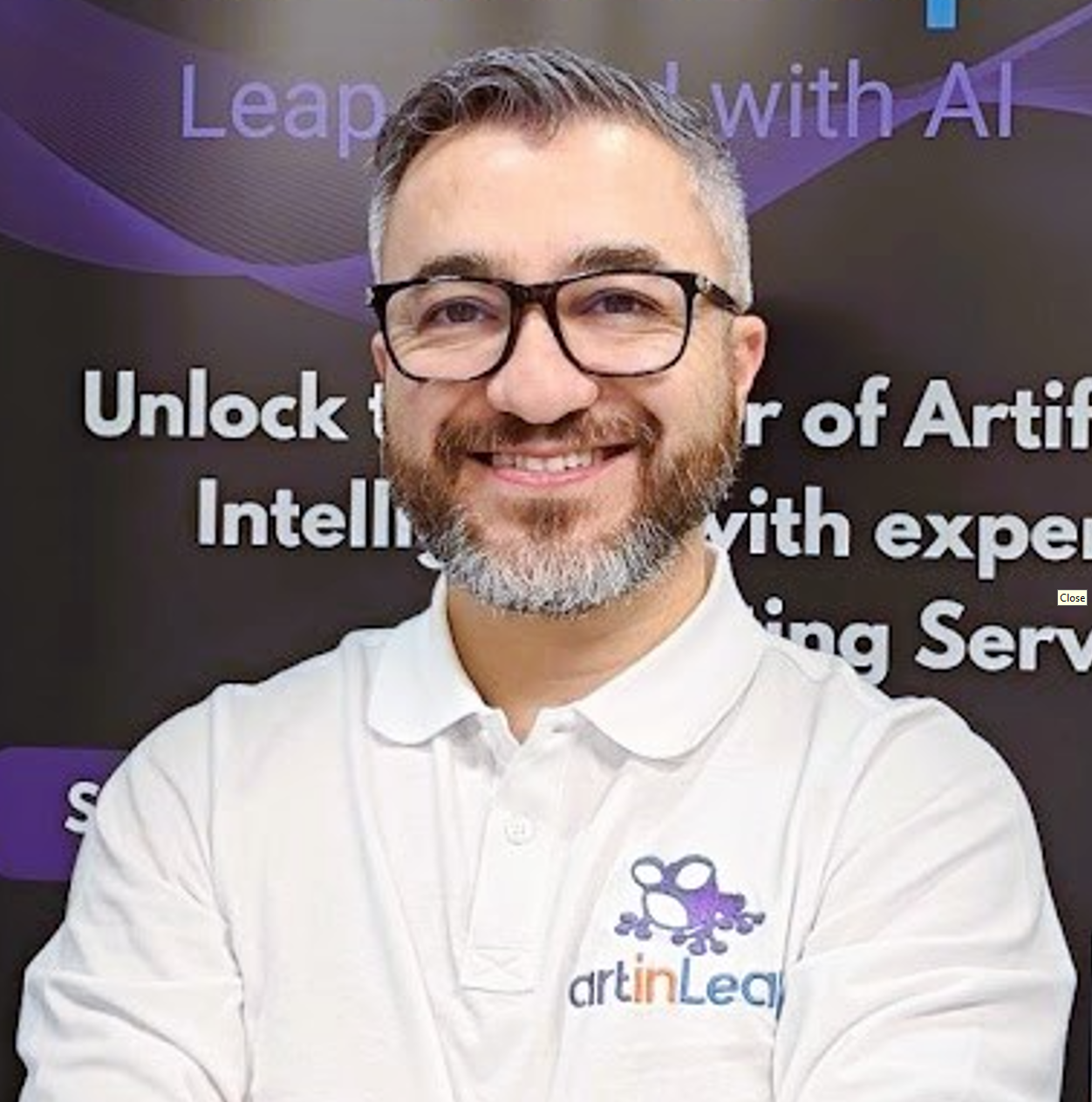 EntrepreneurIA Interview with John Murat, CEO of Adison.ai and Talented International, Dublin
EntrepreneurIA Interview with John Murat, CEO of Adison.ai and Talented International, Dublin
Interview by Pascale Caron
John Murat is a recruitment expert, known for his skill in blending technology with global talent management. As President of La French Tech Dublin and Foreign Trade Advisor for France, he supports French startups in expanding into Ireland.
With nearly 25 years of experience, John founded Adison.ai, an innovative AI platform enabling companies to promote their employer brand on social media. Using advertising techniques and data analysis, Adison.ai effectively targets talent.
Could you tell us about your activities, and what unique aspect of your sector drove you to integrate Artificial Intelligence?
I’m French, originally from Lyon, and I moved to Ireland nearly 30 years ago. I was fortunate to arrive at a pivotal time when numerous American companies were beginning to establish operations locally. This inspired me to create a recruitment agency to help these businesses settle and grow.
At first, we focused on French-speaking talent for companies like Apple, Hertz, IBM, and HP, which had centralized their European operations in Ireland. Later, we expanded internationally, working with companies in diverse sectors like pharma, engineering, industry, and retail.
We opened offices in Switzerland, France, and Spain, and I led this agency for 20 years.
In 2018, as artificial intelligence was gaining traction, I traveled to the United States to explore the AI ecosystem in recruitment and talent management. I discovered several innovative platforms. Although Europe has since caught up, the U.S. was far ahead at that time. This inspired me to shift toward technology. In late 2017, I decided to develop software that would allow targeted job postings on social media, using marketing techniques applied to my field.
Starting in 2019, during the pandemic, we intensified our research with an Irish institute to identify ways to improve talent sourcing through AI. We leveraged behavioral data and segmentation techniques, helping us to identify specific user groups based on preferences. As a result, we created a system that allows recruiters to precisely target candidates by integrating AI-driven automated ads.
This solution fine-tunes content, visuals, budgets, and publication schedules to maximize campaign effectiveness, offering a refined selection of leads. Unlike traditional marketing, which broadly casts to yield a low percentage of qualified profiles, our approach concentrates on the most relevant candidates who align with the company’s values and culture.
AI enables us to create groups of candidates sharing similar values and skills, which we reach through specific advertisements.
Since 2018, I also founded another recruitment agency in Barcelona and Lyon to exclusively use AI tools. This choice gained further momentum during Covid, which accelerated AI adoption in the talent sector.
In parallel, as President of French Tech Dublin for four years, I have worked to build connections between the French and Irish ecosystems, with a particular focus on AI. We’ll be organizing an event in December in Dublin, where French and Irish companies will present their AI recruitment software.
To go beyond advertising creation, we have developed solutions to identify potential candidates who meet not only the required skills but also the company’s values and culture. We continuously monitor to incorporate the most advanced AI applications into our processes, with the goal of staying a step ahead in a constantly evolving field.
Since 2018, apart from the arrival of ChatGPT, few revolutions have truly disrupted our industry. ChatGPT was a significant change, but it also revealed certain limitations: consultants’ excessive use sometimes complicated job descriptions, making them less appealing. That’s why we stress the importance of human skills to refine AI-generated results and ensure a clear, relevant language.
In my early days, I was inspired by examples like Walmart, which trained staff using augmented reality headsets to simulate aisle layouts remotely. This innovation was fascinating, opening possibilities to reform outdated practices.
In recruitment, many agencies still hesitate to invest in technologies like SaaS. This is why my former partner and I parted ways: he favored traditional approaches, whereas I saw tremendous potential in automation and AI, motivating me to pursue this path.
What AI solutions have you selected?
Some are disappointing and don’t always add revolutionary value. For example, American companies aggregate public profiles on Google to reconstruct candidate contacts by combining information from various sources like LinkedIn, Facebook, Twitter, and others.
Though promising in theory, this method has shown limitations: we may contact a hundred people, but only get two responses, as these profiles are often passive or outdated.
In Europe, this type of outreach is less accepted than in the U.S., where direct email contact is more common.
I tested several solutions, some with substantial funding of up to 200 million dollars. But ultimately, I stopped using them as they didn’t meet our efficiency and relevance expectations. I then decided to develop my own software to offer a more pertinent experience.
The latest AI systems don’t always deliver successful results. For instance, aggregated profiles from Google have limitations: between the time people update their profile and when it is indexed, much information becomes obsolete. Fortunately, there are other more effective tools, especially for improving our commercial approaches.
We use sophisticated email marketing systems that help us identify the right contacts and optimize our messages, making them more impactful and less likely to be perceived as spam.
These systems analyze and recommend adjustments to make messages clearer, more direct, or less commercial, as needed. Thanks to these solutions, about 70% of our new clients come from campaigns generated by these emailing tools.
Today, automation is crucial, whether for email dissemination or internal contact tracking. However, I notice that the sector is flooded with solutions that improve some processes but lack major innovation.
So, you’ve ventured into your own development with adison.ai?
Adison.ai—a nod to Thomas Edison and the word “ad” for advertising—represents our vision for the future of recruitment. It’s an AI that provides companies with a clear assessment of their employer brand and areas for improvement. By highlighting key points to strengthen, they can differentiate themselves to attract the qualified profiles they seek.
Adison.ai integrates various sources, including company career pages and social media, to quantify their positioning.
This creates a visual and analytical portrait of their talent attraction capabilities. From there, a recruiter can submit a job description to our chatbot, which generates suitable ads ready for targeted candidate groups.
These ads redirect users to a marketing conversion page optimized for each business sector.
Interested profiles are subsequently screened via an automated system (salary, location, etc.), allowing them to be ranked by quality and relevance. This provides our clients with a qualified list. However, we remain convinced that the final candidate assessment should be conducted by people, not AI tools, as it involves nuances that only human interaction can capture.
We also complement our processes with AI-assisted interview recordings using the Noota software, which fully transcribes exchanges. Designed in Bordeaux, this AI generates summaries and key meeting indicators. It’s very useful for interviews or client meetings.
With adison.ai, our ambition is to truly revolutionize the identification, attraction, and conversion of profiles. Too often, companies rely on posting ads on platforms like Indeed or LinkedIn, but this approach remains insufficient. Statistics show that, on average, 250 applications are needed for a hire on these platforms, underscoring the method’s lack of relevance. Companies need to refine their internal appeal, as factors like career opportunities, company culture, and working conditions are decisive.
We initially developed adison.ai in collaboration with an external company. In 2022, we released a first version. I hired a CTO last year to lead the solution towards a GenAI component that could simplify and automate by creating a fully automated recruitment team.
The commercializable V2 will be ready in two months. We already have numerous interested company contacts. Our idea is to offer a finalized product to pilot sites, then continue our development and consider fundraising to accelerate growth.
Are you using generative AI within the company?
Most team members—there are 14 of us—use ChatGPT for various tasks, but it’s within our software that AI takes its full importance.
We’ve implemented several specialized assistants. However, within the firm, use is limited to improving job descriptions and messages.
Regarding data security, we haven’t yet implemented formal verification. My consultants use ChatGPT when no private or confidential data is involved.
What technical challenges have you encountered with your CTO in implementing AI?
There are many, especially choosing hosting infrastructure. We initially used AWS but are exploring alternatives, such as Scaleway, to select the most suitable solution. We align with French Tech standards to comply with France’s objectives.
Another challenge is combining software and their interoperability. It’s not always easy to find tools that work well together. We are currently testing existing products to speed up implementation, but the complexity of integrating different technologies forces us to segment each component. We’ve organized modules by expertise so that each library is well-defined, making our AI more precise and improving the relevance of responses.
What positive changes have you observed in team dynamics and your clients?
The initial results of personalized messages generated with AI are very encouraging. We aim to avoid automated interactions by fostering engagement through individualization.
AI has brought time savings, but I also notice it can lead to a certain laxity. Younger employees are sometimes less proactive, and automating certain tasks can accentuate this lack of initiative. Of course, agility and execution speed have improved, but maintaining a quality standard remains necessary, especially in process follow-up.
The advantage is that with more free time, they can focus more on candidate interviews. However, automating certain steps sometimes leads consultants to overlook important questions. Fortunately, tools like Noota, as I mentioned, allow for interview recordings and capture all information to automatically integrate into our database, creating a summary to share with clients.
What advice would you give SMEs hesitant to take the step towards AI?
I would say it’s essential to start with a clear vision of the desired outcome by defining a detailed plan from the beginning.
The mistake many companies make, myself included, is thinking that AI can be introduced without prior thought: it requires setting up a structured project.
So, it’s essential to identify specific needs and choose compatible platforms to avoid isolated tools. At first, I selected the best software in each area without considering their interoperability. This approach generated unnecessary complexity.
Another difficulty is the rapid pace of AI technology evolution. Solutions that were cutting-edge at one time can become obsolete within a year, and it’s sometimes necessary to replace a system each year. I had to connect several tools manually through Zapier to automate certain tasks, but this remains a temporary and imperfect solution.











